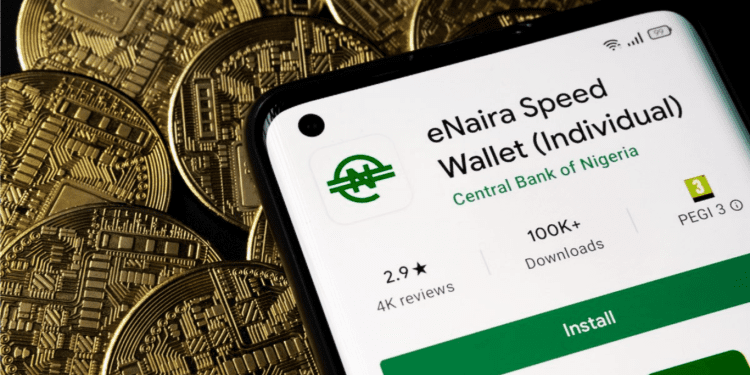- The central bank of Nigeria has upgraded its CBDC mobile app with Near Field Communication (NFC) technology to enable contactless eNaira payments.
- The NFC technology is expected to boost adoption rates for the CBDC by facilitating convenient interactions between mobile devices and payment terminals.
- The eNaira will also have programmability features, allowing targeted fund allocation to designated government programs and reducing the risk of fraud.
Despite the recent removal of the former governor, the Central Bank of Nigeria (CBN) continues to be committed to its central bank digital currency (CBDC) project.
According to a report by local news outlet The Sun, the central bank has incorporated Near Field Communication (NFC) technology, allowing for convenient and contactless payments, to further encourage the adoption of the eNaira and improve the CBDC mobile app.
Previously, transactions in the eNaira mobile app were made using QR codes.
The CBN, on the other hand, has now added NFC technology to allow for seamless interaction between mobile devices and payment terminals.
Near-field communication (NFC) is a short-range wireless connectivity technology that utilizes magnetic field induction to allow communication between devices.
During an eNaira sensitization workshop at the University of Abuja, Joseph Angaye, deputy director of the Central Bank of Nigeria’s risk management department, emphasized the importance of embracing new technology.
He stated that the upgrade is expected to play a critical role in increasing CBDC adoption rates.
The eNaira App Provides Numerous Advantages to Users
According to Angaye, the eNaira has evolved and gained a number of valuable features.
“There are many benefits of the eNaira app. The world is going digital, and the CBN cannot afford to lag behind. So, when there’s a new technology, we embrace it,” he explained.
“We were the second country to launch the eNaira app.” The app has numerous applications and benefits. It can be programmed.”
Furthermore, the eNaira app includes several programmable features that improve its usability and functionality. For instance, it can be programmed to be used in specific locations or for specific items, making it particularly useful for executing intervention programs. Authorities can also ensure that funds are only used for their intended purposes, preventing misappropriation or diversion.
“That’s the beauty of it. Speed of transaction and reduction of settlement risks have all been taken care of by the CBN’s eNaira.”
Nigeria launched the eNaira in 2021, making it one of the world’s first countries to offer a CBDC.
However, initial adoption rates were lower than expected, prompting the CBN to investigate various strategies to increase usage. For example, the central bank has integrated USSD functionality into the eNaira offering and introduced use cases in the transportation sector.
Despite these efforts, former CBN Governor Godwin Emefiele blamed the eNaira’s slow growth on commercial banks prioritizing profits over CBDC expansion.
It is worth noting that Nigeria’s central bank previously banned banks and financial institutions from facilitating digital currency transactions in 2021.
Despite the ban, residents of Africa’s most populous country continue to account for the majority of digital token transactions conducted on peer-to-peer trading platforms outside of the United States.














